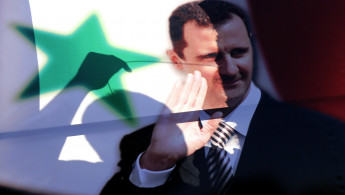Meeting of minds? Syrian opposition rivals gather in Riyadh
Syrian opposition groups began unprecedented talks in Saudi Arabia on Wednesday, official media said, in an attempt to unify ahead of potential talks with President Bashar al-Assad's regime.
"The meeting saw a broad participation of Syrian opposition groups inside and outside Syria," the Saudi Press Agency said.
Saudi Foreign Minister Adel al-Jubeir welcomed the delegates to the closed-door meeting and expressed hope for successful talks.
He then left and the Syrians began meeting among themselves, an effort expected to continue until Thursday.
The Saudi-organised talks mark the first time representatives of Syria's various political and armed opposition factions have gathered together since the outbreak of the country's conflict in mid-2011.
|
|||||
They are gathered at a heavily secured luxury hotel in the Saudi capital. The goal is to form a unified bloc for talks with Assad that world powers hope can be held by the end of the year.
| Read more: 'Roadmap without Assad': Syrian opposition Riyadh meeting kicks off |
'Difficult mission'
Some 100 representatives are attending the meeting, including the Saudi-backed Jaish al-Islam (The Army of Islam), an amalgam of factions that include hardline Islamists, though the umbrella group itself is not listed as a terrorist organisation.
The invitees do not include those considered to be "terrorists", such as the Islamic State group or al-Qaeda's Syrian affiliate, the Nusra Front.
Kurdish factions are also not invited.
"The mission is difficult and risky," Samir Nashar, a member of the Istanbul-based National Coalition - the main Syrian opposition grouping - said on Sunday.
Nashar added that the aim was to "agree on a common and clear position concerning the future of Syria, the transition and the stance on [the fate of] Bashar al-Assad".
Last month, top diplomats from 17 countries - including key international backers and opponents of Assad - met in Vienna in search of a political solution to Syria's war, which has seen more than 250,000 people killed since March 2011.
'Core differences' over Assad
Those nations included the United States and Saudi Arabia which back the opposition, and Russia and Iran, Assad's main supporters.
They agreed on a fixed calendar for Syria that would see a transition government set up in six months and elections within 18 months.
Speaking of "core differences" over Assad's fate, Nashar said he feared that "some groups close to states supporting the regime could demand that Assad stays during the transition period".
"This risks causing the failure of the meeting," he said.
Groups supported by the United States, Saudi Arabia and Qatar demand Assad's rapid departure, a condition that Iran and Russia-allied groups continue to oppose.
"The opposition still demands the departure of Assad at the beginning of the transition period," insisted Ahmed Ramadan, another National Coalition member.
"We cannot negotiate before agreeing in principle and having a date for the departure of Assad," he said.
Nashar said that although a ceasefire was a must, that "could not mean that we accept that Bashar al-Assad could stay during the transition [only] because he will stop killing".
Meanwhile, the Syria-based opposition tolerated by the regime argues that Assad's fate should be decided by the Syrian people themselves.
"There is an international agreement that this issue should be decided by the Syrians," said Hassan Abdel Azim, who heads the National Coordination Committee for Democratic Change.





 Follow the Middle East's top stories in English at The New Arab on Google News
Follow the Middle East's top stories in English at The New Arab on Google News

![Israeli forces ordered bombed Gaza's Jabalia, ordering residents to leave [Getty]](/sites/default/files/styles/image_330x185/public/2176418030.jpeg?h=a5f2f23a&itok=_YGZaP1z)
